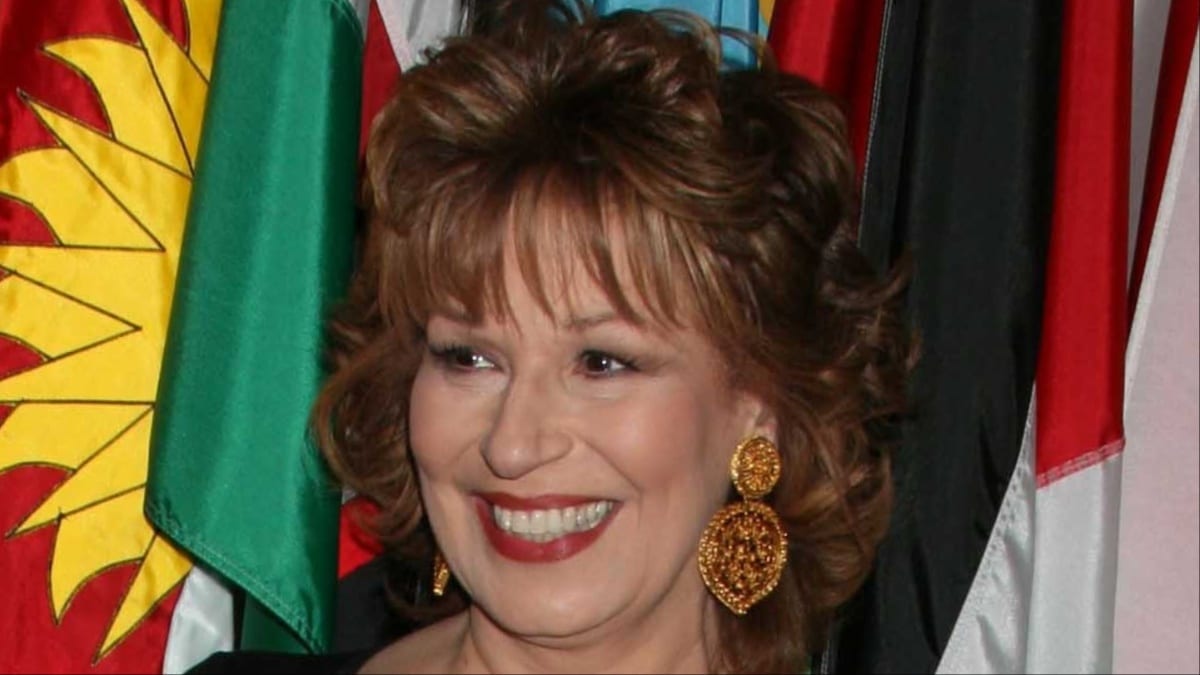The College Board yesterday released its official framework for a new Advanced Placement course in African American Studies, a few weeks after Florida Governor Ron DeSantis said a pilot version of the class would be banned in Florida because it was too “woke” and included content that’s illegal in Florida. Let that sink in just for a second, because it’s gotten so easy to just skim past the idea that any educational curriculum is literally illegalanywhere in these United States.
DeSantis’s education commissars demanded the removal of “illegal” content related to critical race theory — and for a change, the pilot AP curriculum actually did include readings by one of the founders of that discipline, Columbia law professor Kimberlé W. Crenshaw. It also included other topics that Florida found icky, like queer theory, the concept of intersectionality, Black feminism, and calls for reparations for slavery and Jim Crow — specifically, Ta-Nehisi Coates’s brilliant 2014 essay (has it been that long? We’re old!) that really should be mandatory reading. In addition to Crenshaw and Coates, the Florida Department of School Purity objected to readings by bell hooks, Angela Davis, James Baldwin, Audre Lorde, and others.
So let’s skip right to the outcome: The revised curriculum is shorn of most of the stuff that DeSantis objected to, although College Board officials insist that no, DeSantis’s culture warring had nothing to do with the changes, and say that the changes came solely from feedback from the 60 or so high schools that taught the pilot courses. In fact, a College Board statement yesterday said that the revision process “was completed in December 2022,” long before DeSantis demanded the changes. More on that in a moment.
NBC News has a nice summary of what Florida objected to, and what ended up being cut:
State officials announced last month that they had rejected the course because of six areas of concern — “Black Queer Studies,” “Intersectionality,” “Movement for Black Lives,” “Black Feminist Literary Thought,” “The Reparations Movement” and “Black Struggle in the 21st Century” — and works by Kimberlé W. Crenshaw, bell hooks, Angela Davis and other Black authors.
In the revised syllabus, the College Board substantially revised sections about intersectionality. And gone is a section about the Movement for Black Lives.
Instead, in a section for suggested research project topics — which includes the caveat that they are “not a required part of the course framework that is formally adopted by states” — there are suggestions about reparations, the Black Lives Matter movement and, in a new addition, Black conservatism.
There’s a fair amount of overlap between what Florida complained about and what the final framework for the course looks like, although again, the College Board says the revisions were finished in December, and the changes were made for academic reasons. College Board CEO guy David Coleman told the New York Times in an interview yesterday that the organization “can’t look to the statements of political leaders” and that the changes were all the result of “the input of professors” and “longstanding A.P. principles.”
As it happens, much of what Florida had griped about was contained in those secondary readings by hooks and Coates and others, as Coleman ‘splained to the Times.
Mr. Coleman said that during the initial test of the course this school year, the board received feedback that the secondary, more theoretical sources were “quite dense” and that students connected more with primary sources, which he said have always been the foundation of A.P. courses.
“We experimented with a lot of things including assigning secondary sources, and we found a lot of issues arose as we did,” he said. “I think what is most surprising and powerful for most people is looking directly at people’s experience.”
Also too, we can imagine that the decision to shift much of that material to the suggested reading projects allowed the College Board to say the material was still in the curriculum, even though it was no longer really part of the curriculum. Of course, even including Black Lives Matter, intersectionality, Black queer issues, mass incarceration, and calls for reparations as options may still be too much for Florida and other states with those facially unconstitutional “divisive concepts” laws against anything that might make white evangelicals sad.
Slightly hilariously, the the College Board was so mad about the Times’ reporting on the changes that it issued an online grumble about some of the details, insisting that there are too discussions of Black feminists and even Black lesbian activists, as well as content on queer figures like Bayard Rustin. The rebuttal focuses primarily on the suggestion that rightwing complaints had driven the revisions, noting that in fact the nonprofit
has time-stamped records of revisions from December 22, 2022. The article simply ignored that the core revisions were substantially complete – including the removal of all secondary sources – by December 22, weeks before Florida’s objections were shared.
Of course, Florida’s “objections” were all of a piece with rightwing bitching that had already been outlined by the historically anti-racist National Review. (There we go with our Jewish sarcasm again.)
The Times updated its story to include that “time-stamped” bit, but we’re not so sure we can really get behind the College Board’s assertion that the Times was “an outlier to otherwise accuratereporting about the framework.” The links there are to stories at the Washington Post and Politico, respectively, both of which emphasize the College Board’s insistence that political pressure had nothing to do with the changes. But c’mon — even without the Times story, there’s no shortage of coverage (like the NBC News report I’ve used here) pointing out the overlap between what Florida complained about and what was ultimately removed from the framework. (No James Baldwin, for fuckssake?)
Also too, the College Board statement notes that while the secondary sources had ultimately been dropped, “the fact is that no AP courses, not one, not ever, has required a list of secondary sources in their frameworks,” and excoriating the Times for not including that fact, and for its “reckless mischaracterization of our processes and motives.”
You’re not going to believe this, but the “classical liberals,” having got what they wanted, are still complaining.
Ilya Shapiro, director of constitutional studies at the Manhattan Institute, said he did not object to topics like the Black Panthers and the Black is Beautiful movement being included because “that’s certainly part of what was America.”
But after seeing the framework on Wednesday, he faulted it for omitting conservative or independent Black thinkers like John McWhorter, Shelby Steele, Thomas Sowell and Justice Clarence Thomas of the Supreme Court.
“Maybe further changes could be made,” he said. “Even though they said they’re not responding to the specific concerns that Florida raised, it very much looks like they’re addressing the letter of them by making them optional.”
At least that means some future revision of the AP African American Studies course can provide students with a brilliant meta-lesson on how white identity politics continues to run roughshod over education, even in our glorious 21st century of freedom and equality that none dare question because it’s illegal.
[AP African American Studies (PDF) / Atlantic / NBC News / NYT / College Board]
Yr Wonkette is funded entirely by reader donations. If you can, please give $5 or $10 a month so we can keep you informed about all the fuckery, all of it.


























































![Social Media Spring Cleaning [Infographic] Social Media Spring Cleaning [Infographic]](https://imgproxy.divecdn.com/9e7sW3TubFHM00yvXe5zvvbhAVriJiGqS8xmVFLPC6s/g:ce/rs:fit:770:435/Z3M6Ly9kaXZlc2l0ZS1zdG9yYWdlL2RpdmVpbWFnZS9zb2NpYWxfc3ByaW5nX2NsZWFuaW5nMi5wbmc=.webp)
![5 Ways to Improve Your LinkedIn Marketing Efforts in 2025 [Infographic] 5 Ways to Improve Your LinkedIn Marketing Efforts in 2025 [Infographic]](https://imgproxy.divecdn.com/Hv-m77iIkXSAtB3IEwA3XAuouMwkZApIeDGDnLy5Yhs/g:ce/rs:fit:770:435/Z3M6Ly9kaXZlc2l0ZS1zdG9yYWdlL2RpdmVpbWFnZS9saW5rZWRpbl9zdHJhdGVneV9pbmZvMi5wbmc=.webp)















